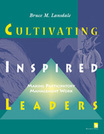Sort by: Author | Title | Publication Year
BOOKS
Abolishing WarWinston E. Langley Is it possible to abolish war? This is the fundamental question animating Winston Langley's new book. And, though many will disagree, it is a question to which the author is persuaded the answer is yes.
Far from being utopian ideals, Langley argues, international security and peace are attainable, as are their necessary corollaries: protection of the environment, conservation of natural More > |  |
Waiting for Rain: Agriculture and Ecological Imbalance in Cape VerdeMark Langworthy and Timothy J. Finan This ethnographic study of Cape Verde tackles critical development issues: the struggle for self–sufficient food security, the tension between agricultural production and natural resource sustainability, and the appropriate role of government policy in food production and natural resource management.
Cape Verde has moved into an ecological imbalance between the sustainable production More > | |
Pears from the Willow Tree [a novel]Violet Dias Lannoy, edited by C.L. Innes, with an introduction by Richard Lannoy and an afterword by Peter Nazareth Seb, the protagonist of this Goan-Indian novel, is a member of the Indian “lost generation” caught between cultures, religions, and epochs. Struggling against the Western-style materialism and spiritual corruption he sees everywhere in the postimperial era, he becomes a teacher at a Gandhian-inspired school in the interior. There, both he and his “slow” students embark on a More > | |
The World Trade Organization: Changing Dynamics in the Global Political EconomyAnna Lanoszka Providing context for the Doha Round stalemate, this comprehensive examination of the World Trade Organization covers all the basics: the WTO's history, its structure, and its practices and concerns.
Lanoszka begins with an overview of the world trading system since the end of World War II and explains the profound changes brought about by the establishment of the WTO. A discussion of the More > |  |
Cultivating Inspired Leaders: Making Participatory Management WorkBruce Lansdale Bruce Lansdale draws on the wealth of experience that he gained during his years at the American Farm School to show how managers can progress from their traditional roles as administrators to become inspired leaders with the capability and eagerness to cultivate leadership qualities—as well as a sense of dedication and commitment to their organizations and their associates—in More > |  |
The Return of Culture and Identity in IR TheoryYosef Lapid and Friedrich Kratochwil, editors Unanticipated epochal events associated with the demise of the Cold War have prompted the recognition that the post-Cold War order is transforming itself culturally even faster than it is changing geopolitically or economically. Within this context, this volume explores the scope and promise of the "return" of culture and identity to the IR theoretical agenda.
The authors address a More > | |
Borders, Nationalism, and the African StateRicardo René Larémont, editor Tackling a fundamental question in the study of contemporary African politics, Borders, Nationalism, and the African State systematically and comparatively examines the impact of colonial borders on the intertwined trajectories of ethnic conflict and state development.
The authors combine case studies (Congo, Ethiopia, Sierra Leone, and Sudan) with thematic chapters to provide a vivid story of More > |  |
Arms Control and Cooperative SecurityJeffrey A. Larsen and James J. Wirtz, editors Reflecting the ongoing debate about the value of traditional arms control in today’s security environment, Arms Control and Cooperative Security thoroughly covers this complex topic.
The authors critically review the historical record, highlight recent changes in the security arena, and consider the likelihood of new arms control agreements. Throughout, the discussion is presented in the More > |  |
Arms Control: Cooperative Security in a Changing EnvironmentJeffrey A. Larsen, editor More than a decade after the end of the Cold War, the need to control the spread of arms remains clear, while the usefulness of traditional paradigms is increasingly called into question. The authors of Arms Control thoroughly review this complex topic, exploring differing approaches to arms control, successes and failures thus far, and the likelihood of future agreements. Ranging from the U.S. More > |  |
Arms Control at a Crossroads: Renewal or Demise?Jeffrey A. Larsen and Shane Smith, editors Is there a role for traditional arms control in today’s increasingly complex security environment? What new concepts and mechanisms are needed to make it valuable as a tool for managing competition and conflict amid the rise of new strategic domains and the spread of new technologies and weapons? Addressing these critical questions, the authors of Arms Control at a Crossroads review the More > |  |



